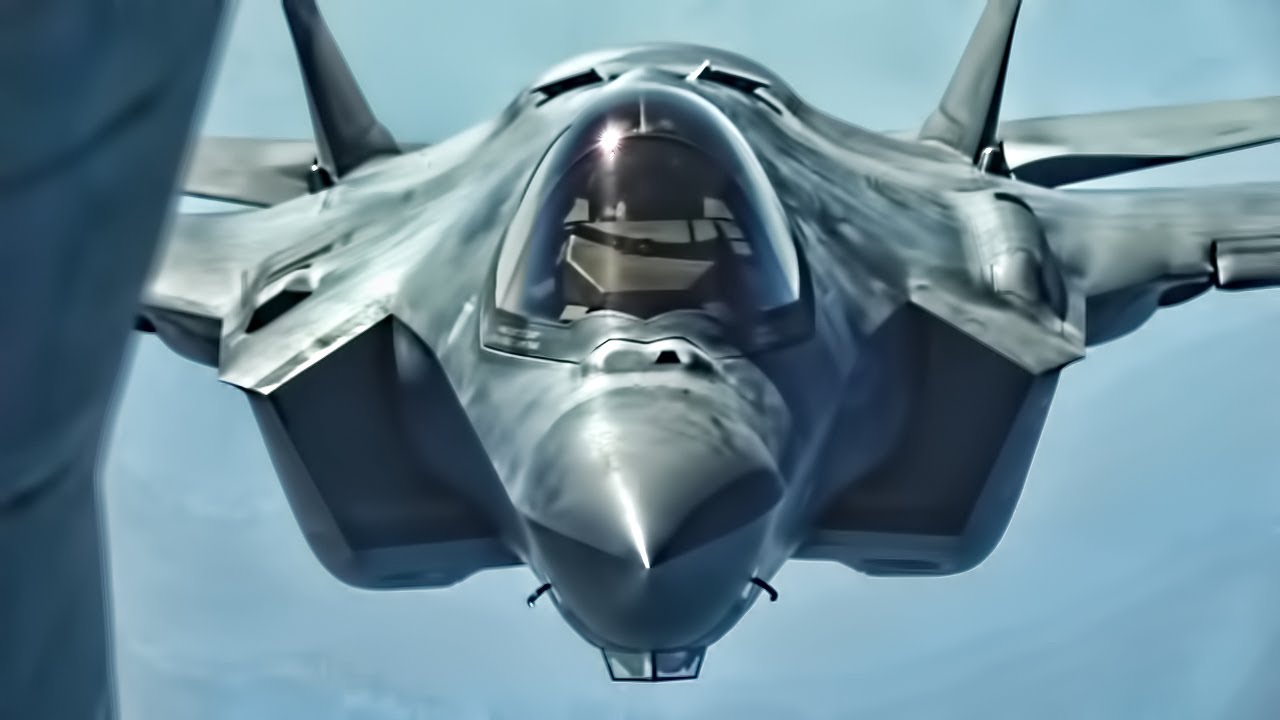Turkey has signaled it would retain its Russian-origin S-400 surface-to-air missile (SAM) systems and not take up the US offer of ditching the platform to acquire the F-35 stealth fighter.
Recent statements from Turkish officials indicate this stance. Besides, other reports show its own homegrown fifth-generation fighter, KAAN, is growing at an accelerated pace, suggesting it is firming up an indigenous alternative.
Turkish Foreign Minister Hakan Fidan told his US counterpart that Ankara is insistent on expecting “compensation” for not being sold the F-35s. This was followed by Minister of National Defense Yasar Guler saying Turkey believes it “will be able to have the money returned (we) paid for the F-35s (and that) the negotiations are ongoing.”
What Is Turkey Seeking ‘Compensation’ For?
First is Ankara’s advance payment of $1.4 billion for an undisclosed number of F-35 fighters. This was before it was expelled from the consortium that manufactures the F-35 in 2020 under the Countering of America’s Adversaries Through Sanctions Act (CAATSA) since it acquired the Russian S-400. The US assesses the air defense system to be capable of detecting the F-35 and compromising its stealth features.

Turkey was also manufacturing around 900 parts for the F-35, including sections of the center fuselage and cockpit display. According to PA Turkey, Fidan told Turkish reporters that Washington and Ankara were “engaged in discussions to resolve Turkey’s demand for compensation.”
Fidan made the statement in the backdrop of US Secretary of State Anthony Blinken’s visit to the country. The overall development, however, is consistent with previous EurAsian Times analysis. These concluded how Ankara is unlikely to ditch the Russian system for a host of aligning technical, tactical, industrial, and geopolitical reasons.
Examining Fidan’s Statement
Reuters reported Fidan saying the US “owed” Turkey the jets for the payment and work it did as a manufacturer. He said Ankara was open to discussing the matter, but Washington needed to be “open-minded.” This suggests Turkey does not accept the US condition to shelve the S-400, to be admitted back into the F-35 program.
But since it paid the $1 billion and manufactured parts for the jet, it should legitimately receive the stealth fighters. If not, it should be given back its money since the said product was not delivered—per standard business practices. Likewise, its aerospace companies should receive payments for manufacturing the critical components.
All the varying reports of Fidan’s statement attribute the term “compensation” to the foreign minister. This means Ankara is expecting to be admitted back into the F-35 program as a legitimate business transaction and not on the US condition that it scrap the S-400—least of all, transfer it to Ukraine.
In other words, the fact that it paid and engaged in industrial activity for the F-35 takes precedence over Washington’s geopolitical rivalries.
And if the US is willing to sacrifice professional business practices and still not sell the jet, Ankara should simply get its money back and be paid for the work it did. Thus, the recurrence of the term “compensation” in statements of top Turkish officials simply means Turkey is fully aware that it is unlikely to ever get the F-35 and is merely expecting a legitimate reimbursement.
Another report carried an extensive statement by Fidan on the issue: “As you know, we were part of the F-35 program, and then there was an unfair decision by the US using the issue of Russian S-400s as an excuse. We are maintaining our position again. We have made a nationwide payment, and we have aircraft to buy. We believe that America should also be impartial on this issue. The exchange of views is underway.”
Pushing To Operationalize KAAN Soon
Ankara is also trying to rapidly develop the KAAN stealth fighter, which is being aggressively pursued for both national prestige and as a substitute for the F-35. Moreover, the project also has significant export hopes riding on it, especially for “Global South” countries that cannot afford the “costly” American F-35.
A major technical element of the KAAN fighter again has an American overlap since the jet flies with a US-made General Electric F110 turbofan engine. Anticipating that the complicated US-Turkey ties might lead to Washington blocking the sale of F110s, Turkey has been developing its own TF6000 and TF10000 jet engines.
The TF6000 “national turbofan” that it tested earlier this week is expected to be an auxiliary power unit for the KAAN while being the primary engine for the Kizilelma wingman and Anka-3 UCAVs.
The TF10000, meanwhile, is being developed specifically for the KAAN – a twin-engine fighter. It is an advanced version of the TF6000 and develops 2,721 kg (6,000 lb) of thrust.
Turkish military analyst Ibrahim Kartas said in a column for Daily Sabah that “tensions” between the “US and Türkiye may not decrease soon” and that an indigenously developed Turkish fighter may disrupt America’s “foreign policy and jet sales, particularly in the Middle East.”
“Washington may (therefore) not greenlight the sale of F110s (to Turkish Aerospace Industries, or TUSAŞ).”
- The author can be reached at satamp@gmail.com
- Follow EurAsian Times on Google News